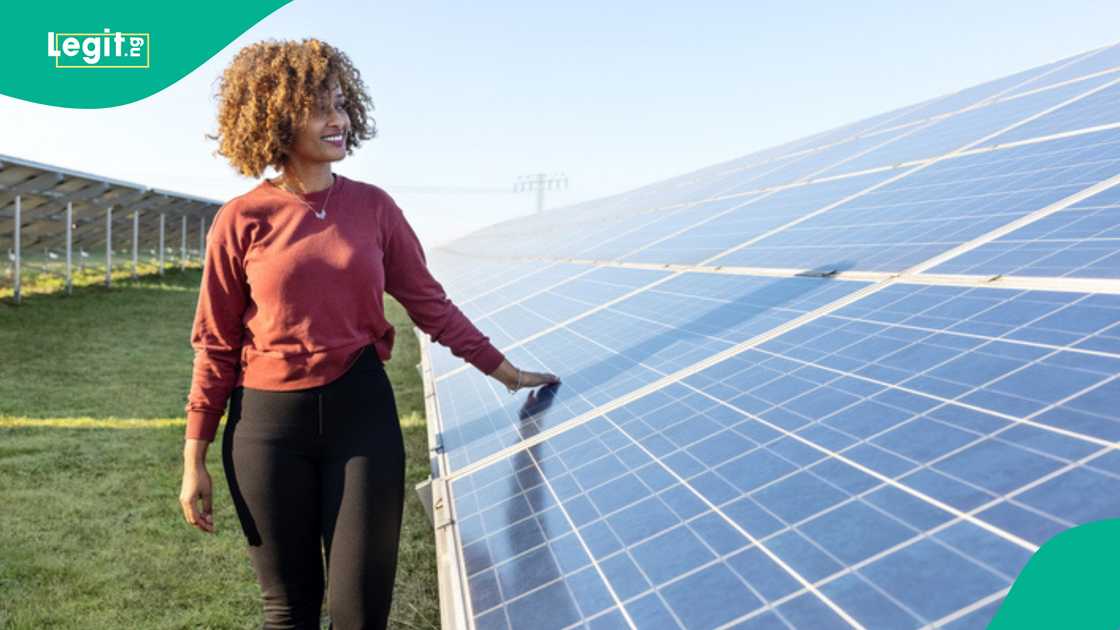Nigeria Launches Solar Cooking Programme for 4 Million Households to Fight Pollution, Poverty
- The Federal Ministry of Environment has introduced solar-powered cooking stoves nationwide
- The new initiative targets over four million Nigerian households and aims to reduce environmental pollution
- IT directly supports national efforts to address household energy poverty, a persistent issue affecting millions, especially women and children
CHECK OUT: How to Start Earning with Copywriting in Just 7 Days – Even if You’re a Complete Beginner
Legit.ng’s Pascal Oparada has reported on tech, energy, stocks, investment and the economy for over a decade.
The Federal Ministry of Environment has announced a nationwide solar-powered clean cooking initiative aimed at reaching over 4 million Nigerian households.
Partnering with CSR Solutions Ltd, the government seeks to eliminate traditional cooking fuels such as firewood and charcoal, which still dominate kitchens in rural and low-income urban areas.

Source: Getty Images
Health benefits for women and children first
This initiative directly supports national efforts to address household energy poverty, a persistent issue affecting millions, especially women and children who suffer the health impacts of open-fire cooking.
According to public health experts, indoor air pollution from cooking with open fires or inefficient stoves is a leading cause of respiratory illnesses, disproportionately impacting women and children.
These groups spend more time near cooking fires and are therefore most exposed to toxic smoke and particulate matter.
The solar cooking program aims to reduce these health risks, decrease hospital visits, and improve overall quality of life for families currently reliant on biomass fuels.
Environmental damage finally gets a solution
Traditional fuels such as firewood and charcoal contribute heavily to deforestation and biodiversity loss, as well as carbon emissions that worsen climate change. With over 90 million Nigerians relying on wood-based fuels, the environmental toll has been massive.
By providing solar-powered alternatives, the program seeks to preserve Nigeria’s forests, combat desertification, and align with global climate action goals such as SDG 13.
Boost for green jobs and innovation
Beyond environmental and health impacts, the solar cooking rollout is a major economic opportunity.
The initiative is expected to generate thousands of jobs across the renewable energy value chain—from production and assembly of solar cookers to maintenance and community distribution.
Micro, small, and medium enterprises (MSMEs) will play a critical role, opening doors to green entrepreneurship and local manufacturing, particularly for youth and women-led businesses.
Project aligns with Renewed Hope Agenda
This clean cooking program is in line with President Bola Ahmed Tinubu’s Renewed Hope Agenda, which promotes sustainability, inclusive growth, and improved living standards.
The move also shows Nigeria’s serious commitment to the Sustainable Development Goals, particularly Goal 7 (Affordable and Clean Energy).
“This is more than a cooking solution, it’s a health intervention, a climate action plan, and an economic opportunity wrapped into one,” said Balarabe Abbas Lawal, Honourable Minister of Environment.
Private sector collaboration fuels rollout
CSR Solutions Ltd, the private-sector partner in the initiative, will bring in technical know-how, implementation support, and robust community engagement strategies.

Read also
77,400 homes for 133 million poor Nigerians? The truth about FG’s Renewed Hope housing programme
Their role is crucial in ensuring the program reaches both urban and rural populations, with a focus on long-term adoption and impact.
This public-private partnership model is expected to serve as a blueprint for other African nations looking to scale clean energy access.

Source: Getty Images
Toward a cleaner, healthier future
If implemented effectively, this program could redefine Nigeria’s clean energy landscape. It signals a strong commitment to innovation, human health, and environmental sustainability.
For the millions of households that will benefit, it means cleaner air, healthier lives, and brighter opportunities ahead.
FG Insists on ending solar panel imports
Legit.ng earlier reported that amid the crisis in Nigeria’s power sector, the importation of photovoltaic solar panels has risen in recent years, now amounting to almost N200 billion annually.
However, the federal government has insisted on ending the importation of solar panels as a means to save the much-needed foreign exchange and reduce pressure on the naira.
The government is instead looking in a different direction and has recently revealed what will be the alternative to solar panel imports.
Source: Legit.ng





